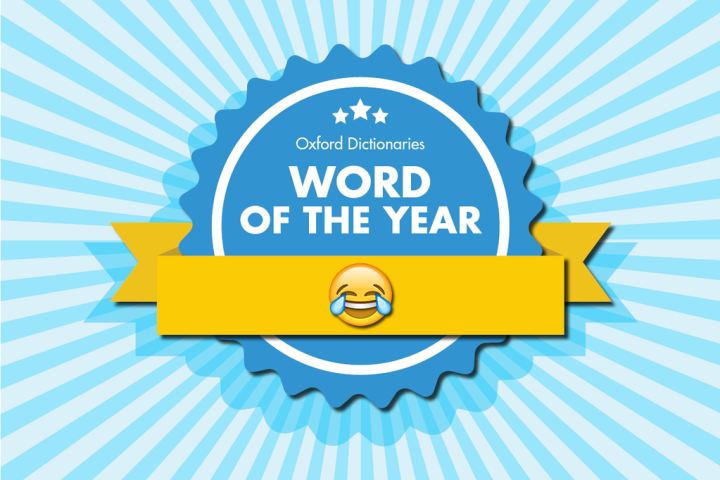
That’s right, its Word of the Year is a little picture of a smiley face crying. Officially known as the Face with Tears of Joy, Oxford Dictionaries said it chose this particular “word” because it “best reflected the ethos, mood, and preoccupations of 2015.”
Keen to demonstrate that its choice was the result of careful research rather than a vote down the pub at the end of a boozy night out, the panel teamed up with smart-keyboard startup SwiftKey to pull in some pictogram-based frequency and usage stats.
Oxford Dictionaries Word of the Year 2015 is… 😂! https://t.co/LjJyxO8cvv #OxfordWOTY pic.twitter.com/Ced28y3I6F
— Oxford Dictionaries (@OxfordWords) November 16, 2015
Face with Tears of Joy – and thankfully not the Middle Finger – was found to be the most used emoji globally in 2015, making up an impressive 20 percent of all the emojis used in the U.K. and 17 percent in the U.S, a significant rise from 4 percent and 9 percent respectively in 2014.
As for the actual word “emoji,” Oxford Dictionaries said that while it’s been knocking around in the English language since 1997, usage has more than tripled over the last 12 months.
Emoji, defined by Oxford Dictionaries as “a small digital image or icon used to express an idea or emotion in electronic communication,” has certainly been in the headlines a fair bit over the last 12 months, no doubt helped by the addition of another 250 characters approved recently by the Unicode Consortium and currently making their way to the main smartphone platforms.
Everyone from fast food chains to individual nations seems to want a piece of the emoji pie, while startups too have been coming up with some wacky inventions to make the most of the apparently surging interest in the colorful characters.
And in case you were wondering, other contenders for Oxford Dictionaries’ Word of the Year title comprised, would you believe, actual words, among them “sharing economy,” “ad blocker,” and “Dark Web.”


